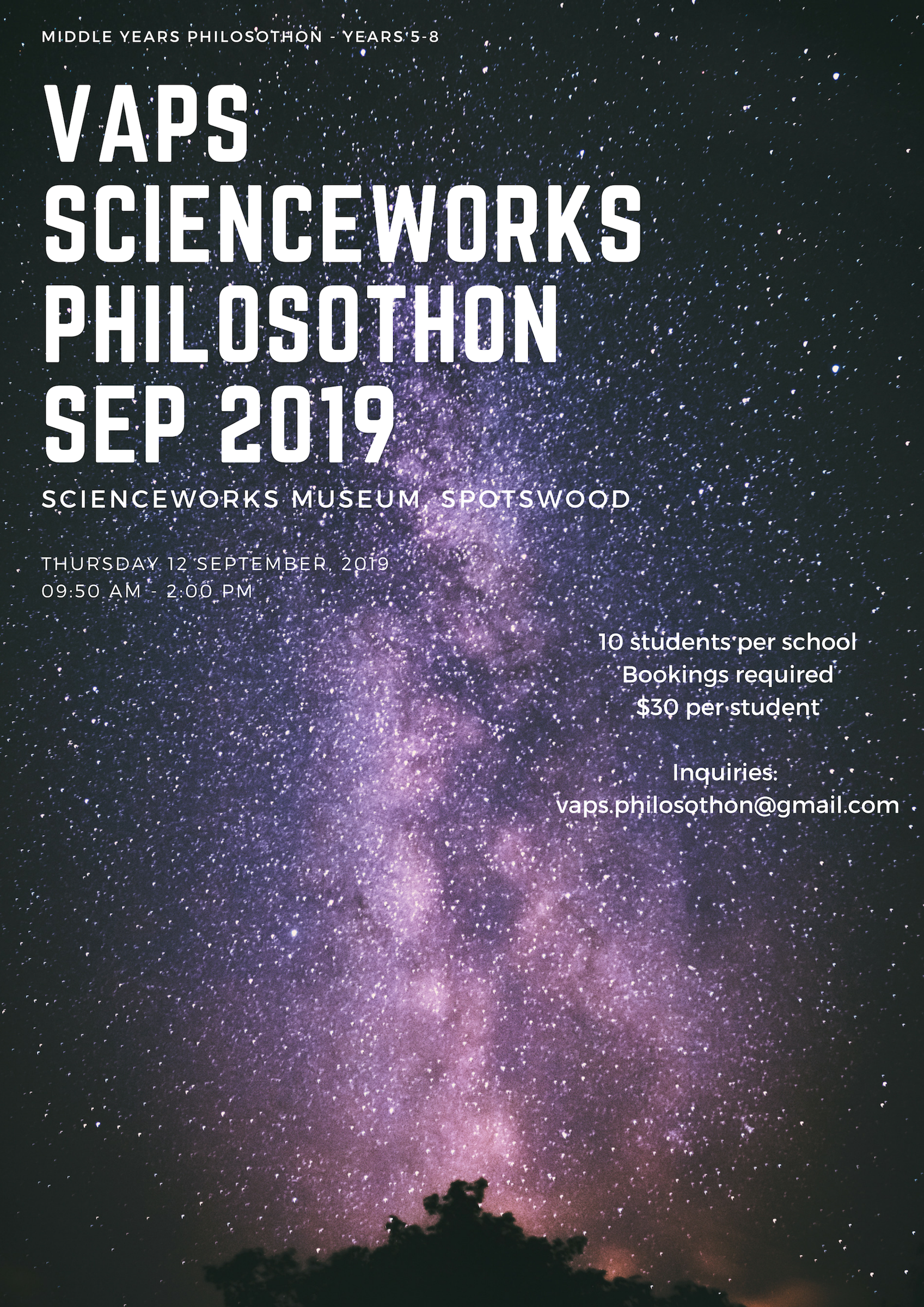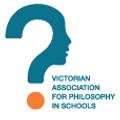Scienceworks Philosothon

Scienceworks Philosothon Recap
On 12th September, VAPS partnered with Scienceworks Museum to deliver a Middle Years Philosothon. 90 students in Years 5 to 8 from 9 different schools came together to collaborate philosophically.
Students from different schools were grouped together collaborating within a Community of Inquiry about a viewing of a planetarium show, and then a chosen exhibit from around Scienceworks. At each site, a group of ten students and a facilitator participated in a philosophical Community of Inquiry about the big ideas that students were struck by from their viewing.
After the two Communities of Inquiry, students returned to their school groups for a debrief and to collect all the ideas each student had been discussing in their mixed-school philosothon groups.
Please see our philosothons page for other upcoming philosothons, including how to register students or to participate as a facilitator.
Moonee Ponds West PS - Our Philosothon Thinking
Students in Years 5 & 6 from Moonee Ponds West Primary School participated in the Philosothon. These ten students were generous enough to provide us with feedback.
Our school collectively decided that a main theme running through all of our Communities of Inquiry was the question 'What does it mean to be alive?
Some groups discussed aliens and how they would be classified. If aliens thought the same thoughts and behaved the same way as humans, would both be classified as persons in the same way?
Our initial thinking was that it doesn't matter what you look like or what species you are, it's how you act and how you choose to live your life that makes you a person.
Others discussed more human topics, such as how should we choose to live our lives? And we thought that a life that is not lived to the fullest should not be classified as a life well lived. In order for a life to be worthwhile, you need to get up off the couch and be an active participant in the world.
Another one of our topics focussed on artificial intelligence, and specifically on human emotion. Interesting questions were raised about the possibility of human emotions being programmed into robots, and whether that would mean that we needed that robot in the same way we treat humans.
Josh, Lara, Bella, Angus, Annika, Ruby, Finn, Kaan, Thomas, Harry, Jeremy
from
Moonee Ponds West Primary School
